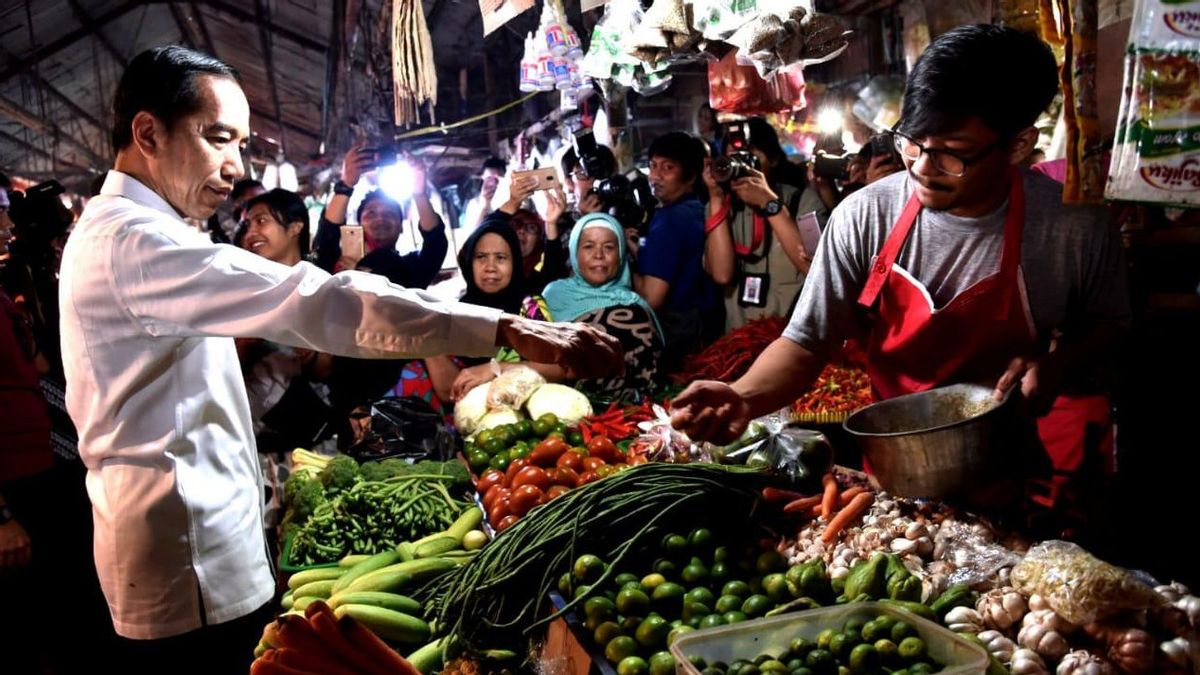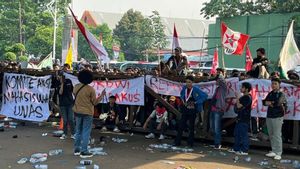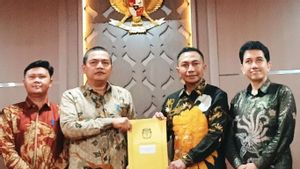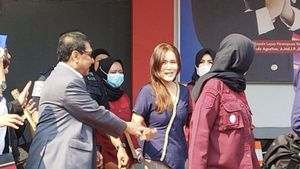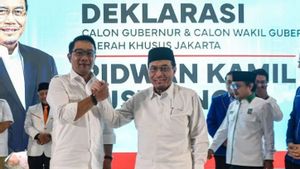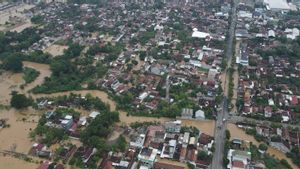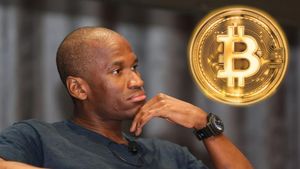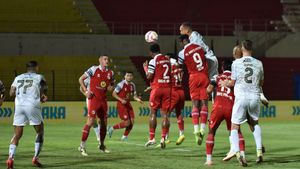JAKARTA In less than two months, President Joko Widodo or Jokowi will end his leadership in Indonesia. On October 20, Prabowo Subianto will receive the leadership position, replacing Jokowi as President of the Republic of Indonesia after winning the 2024 presidential election.
The status as an ordinary person is believed to be an important factor, so Jokowi gained power as President of the Republic of Indonesia in 2014. The former company entrepreneur became the first Indonesian President to come from political and military elites.
When he first became President of the Republic of Indonesia, Time Magazine dubbed Jokowi as the new face of Indonesian democracy.
In its ten years of leadership, Indonesia cumulatively experienced an increase in GDP by 43 percent. Infrastructure development is also very massive. There are 16 new airports built, 18 ports, 36 dams, and 2000 km more toll roads. The IMF even predicted Indonesia would become the world's number six economic power, shifting Russia and Britain.
Jokowi was praised for his success. He is consistent with his political characteristics, namely blusukan. An impromptu visit to the public to find out all the problems they face.
Despite stumbling at the beginning of his leadership as President of the Republic of Indonesia, Jokowi was able to finish his first term smoothly. In fact, he was able to face the 2019 presidential election again to become President of the Republic of Indonesia. In a country that is almost damaged by dynastic politics and corrupt behavior, Jokowi is considered a revolutionary by most Indonesians.
However, Jokowi slowly faded when entering his second term of office. His policy of imposing the death penalty for drug dealers has been heavily criticized by the west on behalf of human rights. His decision to raise the main rivals in the 2014 and 2019 presidential elections, Prabowo Subianto as Minister of Defense also made the public dumbfounded.
Jokowi's brightness faded even before the 2024 General Election until its implementation. Although he did not openly express support for Presidential Candidate Prabowo Subianto, Jokowi clearly supported his former political rival.
Coupled with the election of Jokowi's eldest son, Gibran Rakabuming Raka as Prabowo's Vice Presidential Candidate. Complete public suspicion that Jokowi wants to maintain his power as long as possible, by building dynastic politics.
Many critics then called Jokowi a liar, a destroyer of democracy. Jokowi is said to have deliberately bent regulations to build his political dynasty. An irony for Jokowi, a leader who once said: 'Being president doesn't mean channeling power to my children.'
Even to the extent of student demonstrations that took place on August 22 in various major cities in Indonesia, all points to Jokowi. The accusation remains, Jokowi wants to perpetuate power through dynastic politics. After Gibran, he is accused of trying to pass his youngest son, Kaesang Pangarep, in the governor's contestation in the 2024 Pilkada which will be held next November.
Despite being hit by various issues and slanted accusations. Jokowi's popularity seemed to budge. Based on various surveys in many institutions, Jokowi's popularity as a leader remains high. The level of support for the man who was born with the name Mulyono in Surakarta on June 21, 1961 is still very high. Approval ratings, or the level of public satisfaction with Jokowi still reaches more than 70 percent. There are even survey institutions that get 80 percent!
Through this very high level of public satisfaction, of course, Jokowi is expected to end his term of office with a happy ending. For a political leader, happy ending is a legacy that will reap praise from generation to generation.
Compared to several world leaders, the level of public satisfaction with Jokowi is one of the highest. The figure is far above Lula da Silva (Brazil / 50 percent), Emmanuel Macron (France / 26 percent), Justin Trudeau (Canada / 40 percent), even US President Joe Biden who only reached 40 percent.
The country's leaders who were able to compete with Jokowi's popularity were not much, two of Narendra Modi (India/76 percent) and Sheikh Hasina (Bangladesh/70 percent). The difference is, Modi has only held his third term since being sworn in on June 9 while Hasina was eliminated on August 5. Hasina, who was very popularly eliminated after a series of major demonstrations hit Bangladesh.
Hasina was eliminated due to her policy that was considered not pro-people, by giving 30 percent of civil servants vacancies to the hero family who freed Bangladesh from Pakistan in 1971.
Whereas under Hasina, Bangladesh's economy is improving. The garment sector played a major role in advancing the country's economy in the delta of the Ganges and Brahmaputra Rivers. However, the economic progress was not evenly distributed. More concentrated in the capital city of Dhaka, and became the right of the very wealthy elites.
Hasina is also considered to run an authoritarian government. The level of corruption in the country remains high, in addition to of course economic inequality. All of this has an impact on the end of Hasina's sad ending leadership. He was ousted, and now lives as an escape in India. His efforts to acquire asylum in the UK have not yet received the green light.
SEE ALSO:
The English, Chinese, Japanese, Arabic, and French versions are automatically generated by the AI. So there may still be inaccuracies in translating, please always see Indonesian as our main language. (system supported by DigitalSiber.id)
